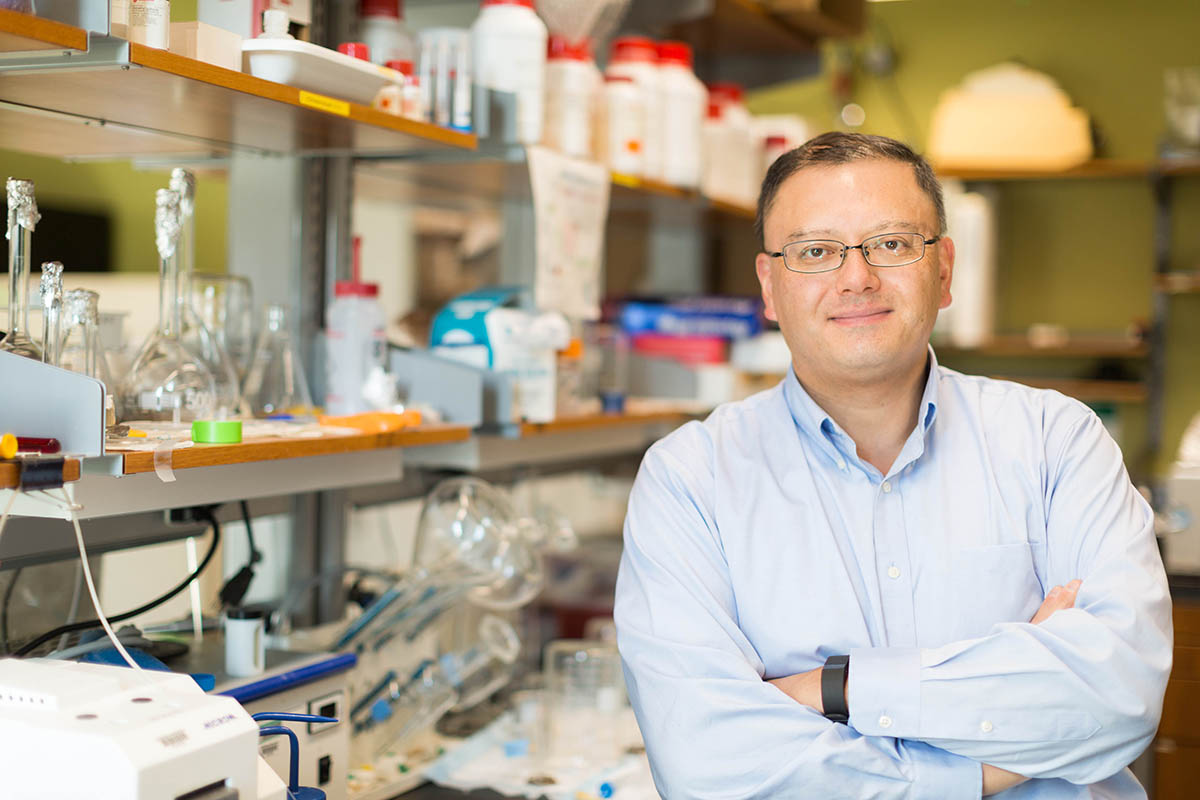Takao Hensch wins Mortimer D. Sackler, MD Prize

Weill Cornell Medicine and Columbia University College of Physicians and Surgeons announced the Mortimer D. Sackler, MD Prize for Distinguished Achievement in Developmental Psychobiology has been awarded to Takao Hensch, professor of neurology at Harvard Medical School’s Boston Children’s Hospital, and professor of molecular and cellular biology at Harvard University’s Center for Brain Science.
Hensch’s selection as this year’s Sackler Prize recipient recognizes his pioneering achievements in the understanding of early brain development and his interdisciplinary leadership in research at the interface of neuroscience and cell biology. Applying cellular and molecular biology techniques to neural systems, Hensch’s research has identified pivotal inhibitory circuits that orchestrate structural and functional rewiring of connections in response to early sensory experience. His work expands our basic understanding of brain development and may affect therapeutic approaches to devastating cognitive disorders later in life.
“Dr. Hensch’s seminal research examining how critical period plasticity can be modified has enormous potential for understanding normal human development and the possible amelioration of developmental disorders. He is a wonderful pick for the prize that commemorates Dr. Mortimer D. Sackler’s legacy and his passion for understanding the biological basis of neuropsychiatric disorders,” said Dr. Jay Gingrich, director of the Columbia Sackler Institute and the Sackler Institute Professor of Developmental Psychobiology at Columbia University Medical Center.
“I am thrilled about this year’s recipient of the prize,” said Dr. Francis Lee, interim director of the Sackler Institute for Developmental Psychobiology and the Mortimer D. Sackler, MD Professor of Molecular Biology in Psychiatry at Weill Cornell Medicine. “Dr. Hensch has provided new insights into early brain development that have important implications for neurodevelopmental disorders, through his elegant and groundbreaking work into the mechanisms underlying critical periods of brain development. This interdisciplinary approach to bridging disparate scientific views – with unusual harmony – is a philosophy shared across the Sackler Institutes, as part of Dr. Sackler‘s vision.”
The Sackler Prize recipient is selected by a 15-member committee that includes faculty from each of the six Sackler institutes, programs and centers: Weill Cornell Medicine, Columbia University Medical Center, University of Edinburgh/University of Glasgow, University of Sussex, King’s College London and McGill University. Hensch will receive the prize, which includes a $100,000 award, and hold grand rounds at Columbia and Weill Cornell Medicine on April 12.
Hensch said, “I am overwhelmed and deeply grateful for this unexpected honor. It is very inspiring that our fundamental research into the biological basis of critical periods might impact new thinking about the human condition.”
He continued, “The Sackler Prize will spur our efforts toward identifying higher-order critical periods from the bottom up, and allow us to engage more with colleagues who address similar issues from the top down in patients,” he added. “Together, we can better bridge the gene-cognition gap through shared metrics and a rigorous understanding of local circuit development.”
The Sackler Prize aims to foster international cooperation among scientists and promote public understanding of their work. The prize is presented jointly every two years by the Sackler Institute for Developmental Psychobiology at Columbia University College of Physicians and Surgeons and the Sackler Institute for Developmental Psychobiology at Weill Cornell Medicine.
The prize honors one of the most creative scientists in the field of developmental psychobiology, the late Dr. Mortimer D. Sackler, who began his career as a psychiatrist and pioneer researcher in biological psychiatry in the late 1940s at the New York State Department of Mental Health. In the early 1950s, Sackler, with his brothers, founded the pharmaceutical company known today as Purdue Pharma.
The Sackler Institute for Developmental Psychobiology at Weill Cornell Medicine, established and endowed in 1996, is focused on research and training using state-of-the-art brain-imaging techniques, human and mouse genetics, and novel behavioral methods to study typical and atypical human brain development.
Media Contact
Get Cornell news delivered right to your inbox.
Subscribe